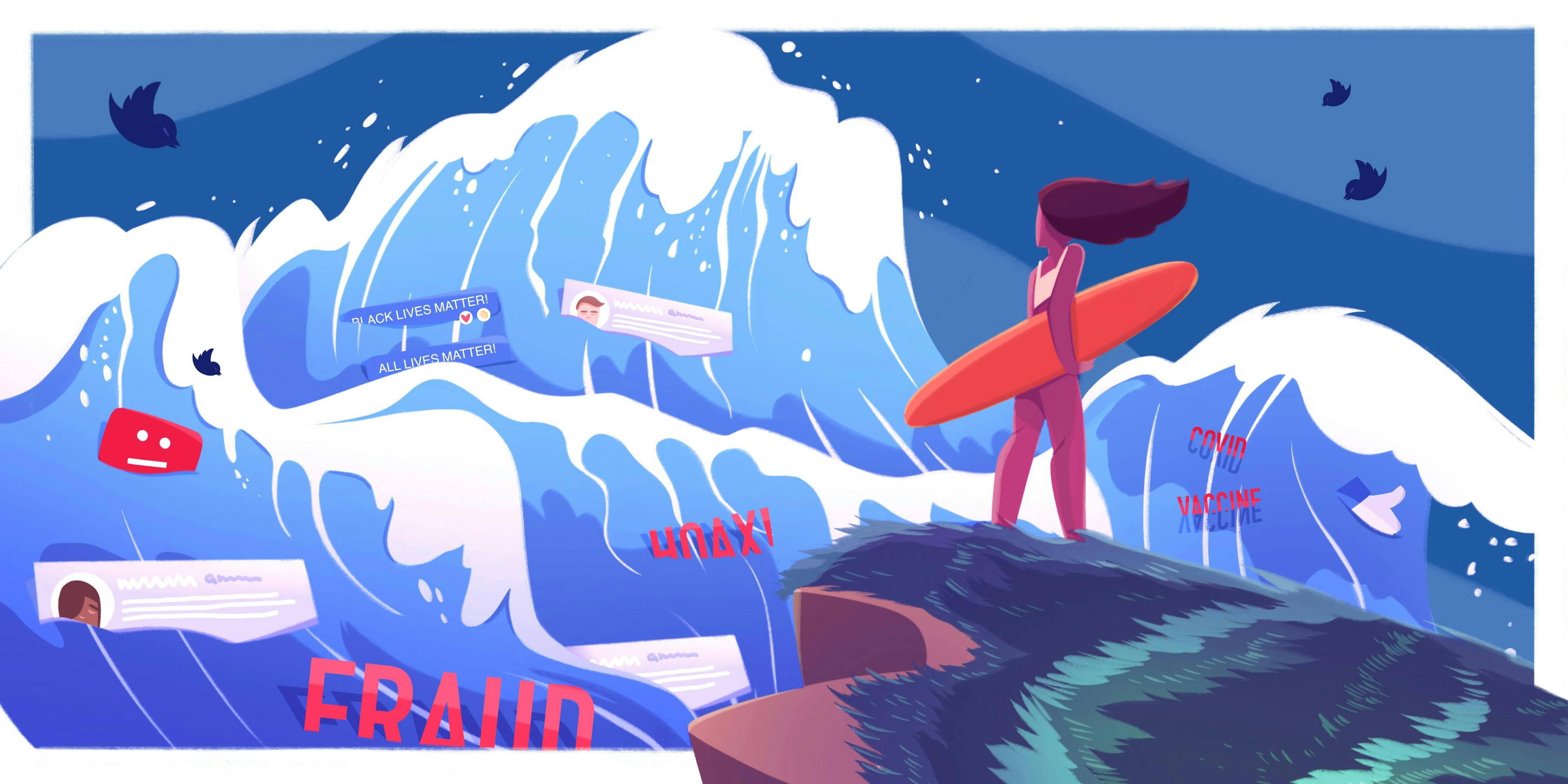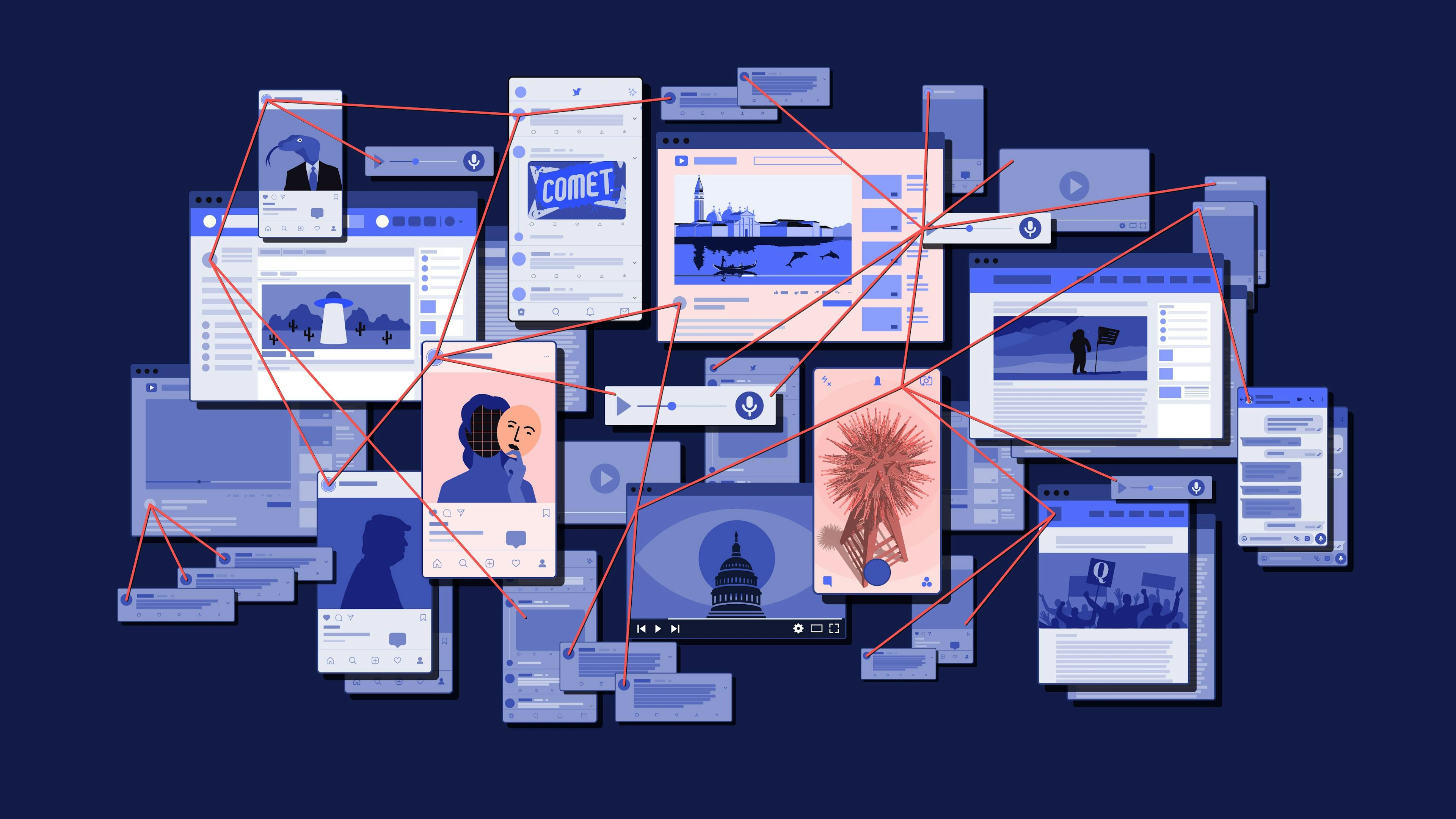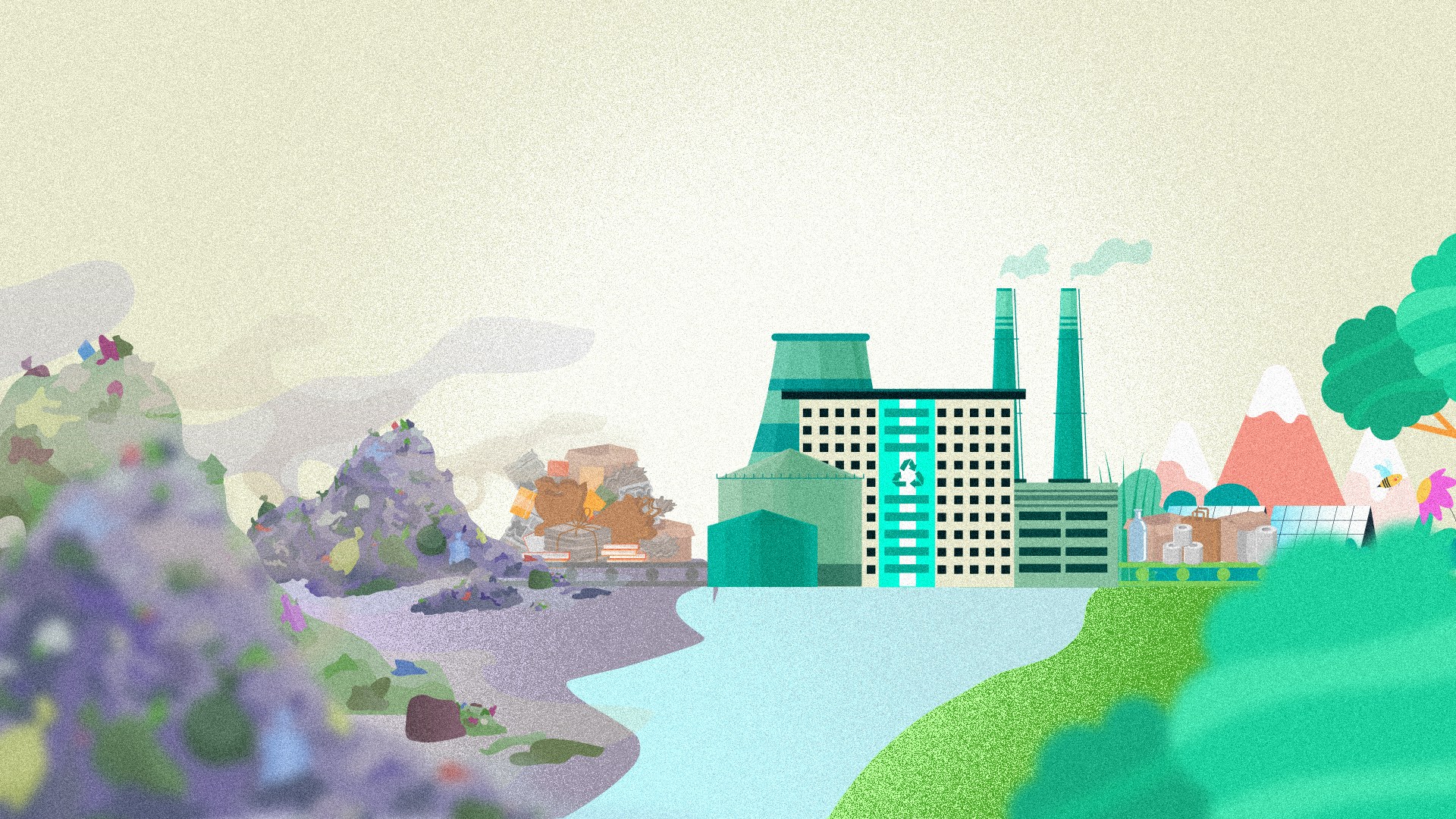How Infodemics are Made, and What They Make of Liberal Democracy

Liberal democracies—with their focus on freedom of speech and open, public debate—accommodate differences in ways no other forms of government have.
They benefit those who would otherwise be marginalised based on their views or identity, and encourage diversity. And the free flow of information, paired with institutional structures that support debate, allow liberal societies to produce knowledge economies and meritocratic, representative systems.
On the other hand, liberal public debate offers equal weight to information... and whomever conveys it, leaving considerations of societal value to the public.
Thus it is the very openness of liberal democracies that makes them vulnerable to infodemics.
What is an Infodemic?
Coined in 2003 to describe the rapid wave of misinformation during the SARS epidemic, the term “infodemic” only recently entered widespread use recently. The Covid-19 crisis has brought about an exponential rise in the spread of inaccurate, misleading and false information. The scale of the latter is unprecedented; the number of English language fact-checkers employed by online platforms rose more than 900 percent from January to March alone, according to one report. And last year, the World Health Organisation launched its first-ever conference on infodemiology.
Scale is only one thing infodemics share with epidemics. Misinformation, too, has real consequences: A five-year-old boy in Iran went blind after his parents gave him methanol, hoping it would protect him from Covid-19. More than 700 people, led to believe that methanol can cure coronavirus, died in the country. In Nigeria, three people overdosed on chloroquine after hearing claims it could help treat the virus. Meanwhile, in the “western” world, misinformation campaigns on mask-wearing and a potential Covid-19 vaccine make public health responses less effective—with many individuals and groups refusing to follow government guidelines as a result.
Whilst many blamed social media giants for the exponential increase in misinformation, the problem is actually deeply rooted in the structure of leading liberal democracies.

Why we believe alternative facts
In many ways, the world is now more susceptible to infodemics than before. Never have so many of us participated in the digital world. More than 50 percent of the world population engages with or posts content online. Digital exposes us to unmediated sources of information, with many users, and indeed mainstream media outlets, increasingly turning to Twitter as a “faster” source of breaking news.
But the speed of information-sharing on social media comes at a cost. Information is often checked by users after it is shared, and it is harder to understand the agenda behind news items after the fact. As a result, crucial distinctions between facts, opinions and ideological frames become muddled.
Generally speaking, however, we are more likely to believe facts we agree with, a phenomenon often referred to as confirmation bias. The most committed “spreaders” of conspiracy theories are far from uninformed. On the contrary, conspiracy theorists do not lack “evidence,” and the fact that they engage in online “research” is what makes them so persuasive to many.
For example, when Barack Obama won the US election, thousands posted online to claim that John Hanson, not Obama, was the first Black US president. John Hanson was neither a US president nor Black. Yet even today, a Google search for the first Black US president yields results that imply it could have been John Hanson in 1781.
The popularity of social media as a news source is another reason misinformation can spread exponentially—with 88 percent of false claims about coronavirus appearing on social platforms, compared with nine percent on television, or eight percent in news outlets, according to the University of Oxford’s Reuters Institute.
But the move away from mainstream outlets towards alternative sources is not accidental. As much of the democratic world experienced an erosion of trust in institutions, social media platforms made a conscious decision to promote feeds from friends over media outlets—an announcement first made by Facebook in 2016.
By prioritising friend feeds, Facebook and other social media platforms famously contributed to the formation of opinion “bubbles” ... and a profound reduction of opinion diversity.
Who profits from snowglobes of opinions
For those seeking real villains, there’s plenty of blame to go around. The unintentional spread of misinformation makes intentional spread by rogue or sinister agents easier and more effective.
The “Black Lives Matter” Facebook page, which boasted 700.000 followers and was among the largest Facebook pages related to the movement, was a scam run by a middle-aged man in Australia, who defrauded $100.000 in donations made to his Facebook fundraising campaign.
Misinformation is also spread for political reasons. Blackvist and LGBTUnited are two of many accounts impersonating civil rights movements—and, in this case, were unmasked as Russian Internet Research Agency trolls. In 2017, Twitter released a list of 2.752 Russian troll accounts. Even its own chief executive fell victim to fake accounts, retweeting Russian trolls posing as civil rights activists 17 times from 2016 to 2017.
Trust is no longer enough
While it is perhaps easy to imagine a future without any trust at all, the more likely outcome of the erosion of institutional trust is a society, and indeed a world, where trust is fragmented. This does not bode well for liberal democracy, because democratic societies require trust to function effectively.
Indeed, the entire premise of modern liberal democracy is that your truth is not better than mine. This premise is increasingly being replaced by communities of faith (to use a term from political philosopher Michael Oakeshott), where people participate, not because of shared institutions or visions of a common good, but because of shared ideas about which facts they accept.
Many individual actors attempt to increase “individual” trust with all sorts of PR and behavioural exercises (Google’s Covid-19 news filter being one of them). But this actually might perpetuate the problem. The more we trust individual sources over others, the more we perpetuate information “echo chambers.” The world we are designing for is one of “verified” facts—which raises questions about who verifies them, and creates an “us” versus “them” dynamic.

The water's always bluer on the other side
What does this mean for democracy?
The success of democracy in modern times was largely due to the ability of political parties, as well as shared institutions, to represent key political and economic divides. This is no longer the case. Both Brexit and the recent US election have shown how destructive internal political conflict can be if divisions run across parties and are not adequately mediated.
The response to Covid-19 itself has tested democratic institutions in the liberal world, and this has in turn undermined trust in the very pillars of knowledge production and public debate.
To be sure, these pillars were in bad condition before the pandemic. Elites have largely appropriated knowledge production under the guise of meritocracy—failing to properly acknowledge rising social tensions and inequalities. But this is not just a partisan issue. While Republican voters in the US, for example, are more likely to believe in Covid-19 related conspiracy theories and misinformation, plenty of Democrats do, too.
The continued rise of digital media made current socio-economic and political tensions within liberal societies worse. It highlights a lack of safe public space for citizens to tackle arising conflicts—but does not provide the means for us to find common ground. This makes for weaker democratic institutions, and a society that easier to manipulate.
What will shape our future
Many people feel online content should be policed with almost religious zeal. Ironically, social censorship has always been a feature of democratic societies. But the consequences of misspeaking online seem more significant and immediate than doing so within your personal community.
Should the current crisis shift consensus towards more authoritarian attitudes, we are likely to see many protections around the use of data unravel—enabling domestic and foreign actors to make even more effective use of misinformation. But the alternative could be a system based on a “tyranny of facts,” where state institutions expand their authority to the digital world through private sector agents, most likely for mutual benefit.
That is an equally gloomy future to one without trust. But there is hope. Finland has shown how successful education can be in fighting fake news, when rightly deployed. In this model, primary school children are taught simple critical thinking techniques that help them question what they are shown.
Perhaps, rather than focusing solely on trust, we should do more to encourage scepticism. Democratic debate can only contribute to progress if all sides approach with what we commonly refer to as an open mind ... and a lucid sense of where, and how, to apply our grains of salt.
02 Apr 2021
-
Michal Rozynek
Illustrations by Macha Pulcini.
DATA-DRIVEN TECH & SOCIAL TRENDS. DISCOVERED WEEKLY. DELIVERED TO YOUR INBOX.
02/03
Related Insights
03/03
L’Atelier is a data intelligence company based in Paris.
We use advanced machine learning and generative AI to identify emerging technologies and analyse their impact on countries, companies, and capital.

